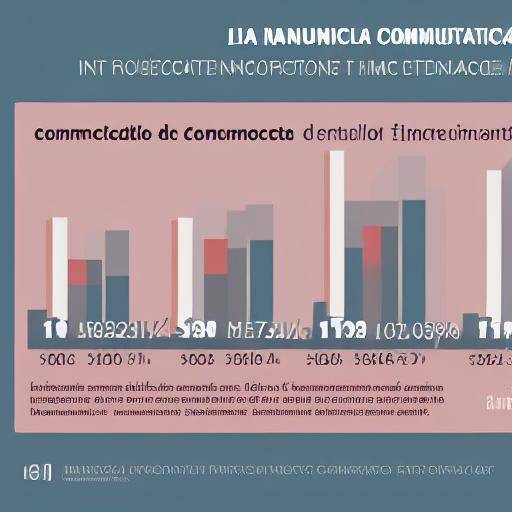
Introduction
Financial communication is a crucial aspect that significantly influences family stability. Whether it is a matter of discussing household expenses, savings for the future or investment planning, transparency, control and financial well-being play a key role in emotional balance and family harmony. In this article, we will explore in detail how financial communication impacts the stability of families, providing a complete vision from history and context to future trends and practical advice.
Transparency: Foundation of Financial Stability
Transparency in financial communication implies sharing openly and honestly relevant information on the economic affairs of the home. As the pillar of trust and mutual understanding, their presence strengthens the foundations of family stability. The manifestation of transparency in finance can be carried out through openness in the discussion of income, expenses, debts, financial goals and investment decisions.
History and Background
Transparency in family finance has its roots in the ancestral need for sharing resources for collective survival. From agricultural societies where the fair distribution of resources was vital to the modern era, the evolution of financial transparency has reflected the social and economic dynamics of each period.
The Industrial Revolution marked a significant turning point in introducing new opportunities and financial challenges for families, generating the need for clearer communication on resources. Throughout the twentieth century, financial transparency became a subject of academic and social interest, influencing public policies and the perception of family stability.
Analysis in Deep
Financial transparency currently faces challenges such as the management of privacy in the digital age and the influence of social networks on the perception of financial status. However, studies show that households where financial communication is transparent experience less conflict and stress compared to those who lack this quality.
The incorporation of technological tools, such as shared financial management applications, has facilitated transparency by allowing joint access to family financial information in a safe and efficient manner.
Comprehensive review
Promoting financial transparency is associated with increased understanding among family members, improving financial decision-making and strengthening emotional ties. Studies show that children who grow up in an environment where financial transparency is practiced develop a healthier understanding of money and a more responsible attitude towards managing it in the future.
Practical Tips and Relevant Actions
- Establish regular family meetings to discuss financial aspects in a transparent manner.
- Use shared digital financial management tools to maintain transparency.
- Promote financial education for all family members, instilling the importance of open communication on money.
Industry Visions and Expert Reviews
“Financial transparency is a powerful tool for family well-being. The more open the communication, the stronger the family ties and the healthier the relationship with money will be.” - Dr. María Gómez, Expert in Financial Education.
Case Studies and Real Life Applications
**Case 1:**The Martínez family implemented a system of financial transparency through the creation of a collaborative budget. As a result, they significantly reduced their debts and financial stress, strengthening their stability and well-being.
**Case 2:**The Rodríguez brothers, through open communication on family heritages, were able to avoid conflicts and divisions, thus preserving their family relationship and harmony.
Control: Empowerment Through Financial Management
Financial control within the family context represents the ability to effectively manage economic resources, establishing specific limits, goals and plans. This element fosters individual and collective responsibility, providing security and stability to family unity.
History and Background
The concept of family financial control has evolved over the centuries, adapting to changing family structures and economic dynamics. From resource management practices in ancient civilizations to modern budgeting strategies, financial control has been a constant search for stability and well-being.
The introduction of financial control tools, such as family budgets, dates from the post-industrial era, where financial planning became more relevant. Equitable participation of family members in resource control has been a crucial factor in strengthening financial stability.
Analysis in Deep
The healthy exercise of financial control promotes the autonomy and transfer of financial knowledge within the family. It also provides a sense of security in preparing members to face unforeseen and achieve long-term financial goals.
The equitable delegation of financial responsibilities among family members fosters a sense of co-responsibility and commitment, strengthening family cohesion.
Comprehensive review
Financial control is directly associated with stress reduction and anxiety resulting from financial uncertainty. Families who practice healthy control perceive greater quality of life and emotional well-being, as effective resource management provides stability and tranquillity at home.
Practical Tips and Relevant Actions
- Establish attainable and measurable family financial targets.
- Promote the active participation of all members in the development and follow-up of a family budget.
- Promote financial education to empower each member with financial management skills.
Industry Visions and Expert Reviews
“Financial control is essential to family well-being, as it provides a framework of security and stability in an unpredictable financial world. Empowering each member with financial management skills is critical to long-term success.” - Diego Pérez, Financial Advisor.
Case Studies and Real Life Applications
**Case 1:**The Gutiérrez family implemented a financial control system by assigning specific financial responsibilities to each member. This practice allowed them to achieve shared financial goals and maintain an environment of trust and security at home.
**Case 2:**The Garcías managed to overcome a financial crisis thanks to the implementation of strict expenditure control and the development of a family savings plan. This approach provided them with economic stability and strengthened their family unity.
Wellness: The Emotional and Financial Balance
Financial well-being in the family context goes beyond the mere accumulation of material wealth. It implies the ability to properly manage economic resources, maintain healthy relationships around money and cultivate an emotionally stable and harmonious environment.
History and Background
The concept of financial well-being in the family has evolved in parallel with the recognition of the interconnection between emotional well-being and economic stability. From old saving and family insurance practices to the modern conception of the well-being economy, the search for a sustainable balance between resources and emotions has been a constant goal.
Financial well-being has gained particular relevance in recent decades, as society recognizes the positive influence of healthy financial management in the quality of life and the overall well-being of families.
Analysis in Deep
Financial well-being is not only reflected in economic stability, but also in the ability of the family to effectively manage the stress and anxiety associated with finance. Research shows that families that prioritize financial well-being experience a greater sense of satisfaction and happiness, which in turn strengthens their cohesion and resilience.
In addition, financial well-being contributes to the development of coping and adaptation skills, preparing the family to overcome economic challenges and promoting a positive attitude towards financial management.
Comprehensive review
Financial well-being in families results in greater harmony and a positive emotional climate, which directly impacts the quality of interpersonal relationships and the perception of security. Promoting financial resilience within the family unit fosters a proactive attitude towards financial planning and management, providing long-term stability and well-being.
Practical Tips and Relevant Actions
- Promote open and honest communication about emotions related to money in the family.
- Promote saving habits and financial planning that align with family values and goals.
- To cultivate a spirit of gratitude and appreciation for the financial resources available, fostering an atmosphere of abundance.
Industry Visions and Expert Reviews
“Financial well-being is essential for family stability, as it allows families to face financial adversities with resilience and optimism. Promoting a solid emotional and financial balance strengthens the family core and its ability to thrive in any economic environment.” - Ana Herrera, Terapeuta Familiar.
Case Studies and Real Life Applications
**Case 1:**The Diaz family, through the regular practice of expressing gratitude for the financial resources available, strengthened their emotional and financial well-being. This perspective allowed them to face financial challenges with calm and resilience, maintaining family harmony.
**Case 2:**The Sanchez started a financial planning process that was based on the identification of family goals and the alignment of budgets with their values. As a result, they experienced greater satisfaction and well-being both in the financial and emotional aspects.
Conclusion
Transparent financial communication, effective control of resources and the promotion of financial well-being are fundamental elements that impact the stability and happiness of families. By promoting open and responsive communication, enabling effective resource management and cultivating a sound emotional and financial balance, families can enjoy greater stability and well-being in all aspects of their lives.
The financial and emotional empowerment that arises from transparency, control and well-being strengthens family ties and prepares its members to face financial challenges with resilience and confidence.
Frequently asked questions
Why is financial transparency important in family stability?
Financial transparency fosters joint confidence, understanding and decision-making, creating an environment of family security and stability.
How can I promote financial control in my family on an equitable basis?
Assigning financial responsibilities to each member according to their skills and preferences, and monitoring progress regularly, is key to promoting equitable financial control.
What is the relationship between financial well-being and family stability?
Financial well-being contributes to the reduction of financial stress and promotes an emotionally stable environment, which directly impacts on the quality of family relationships and security perception.
What are the consequences of lack of financial communication in the family?
Lack of financial communication can generate mistrust, conflict and stress, weakening emotional stability and causing poor financial planning.
How can I foster financial well-being in my family?
Promoting an attitude of gratitude for available financial resources, promoting savings habits and fostering financial planning aligned with family values are key actions to promote financial well-being in the family.
What is the impact of financial education on family stability?
Financial education promotes financial management skills, strengthens informed decision-making and improves collective understanding of financial aspects, contributing to greater family stability.
What is the role of financial communication in the education of children?
Transparent financial communication lays the foundation for children to develop a healthy understanding of money, fostering a responsible attitude towards future management.
In conclusion, the implementation of transparency, control and promotion of financial well-being within the family promotes stability and happiness, laying the foundations for sound financial management and harmonious coexistence. By addressing these elements with a collaborative and proactive mentality, families can reap the benefits of a solid relationship with money, thereby strengthening their financial and emotional well-being.






















































